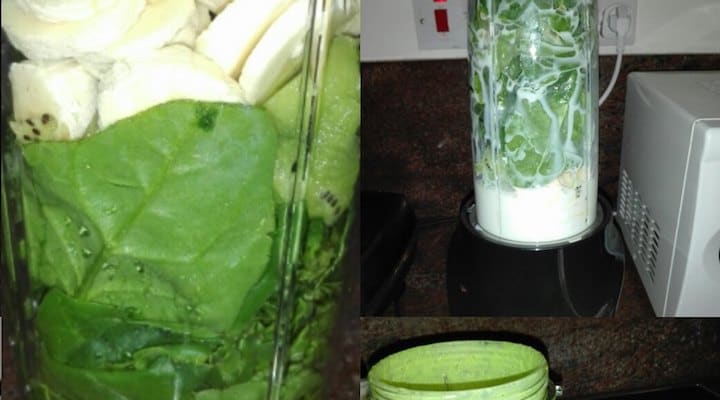
As part of our series on personal experiences dealing with autoimmune disease, today’s post is was contributed by John Redfern.
Psoriasis is one of the most common autoimmune disorders today, and the severity of this
chronic condition can have a huge impact on the daily lives of the people affected. By following
an elimination diet, I was able to finally control my psoriasis for the first time in 14 years, but the
even better part was not having to adhere to a strict diet for the rest of my life. I achieved this by
starting a reverse elimination diet for my autoimmune disorder.
Today my daily routine to keep my autoimmune symptoms at bay consists of managing my
stress levels, ensuring I keep adequate vitamin d levels, and sticking to a psoriasis friendly diet
(sculpted from my full elimination diet and reverse elimination diet personal experiments).
We cover the following....
How Many People Are Affected By Autoimmune Disorders
According to a report by the National Institute of health, autoimmune disorders affect more than
twenty-three million people in the United States and 5% of the population in Western countries.
Unfortunately, at this time, there is no medically confirmed curative treatment for these
conditions. The medications and treatments available are only able to manage the symptoms
alone. In this article, we will explore how to start a reverse elimination diet for autoimmune
disorders, what the AIP diet is, what foods a patient should eat and which ones they should
avoid if they want to follow the diet.
What are Autoimmune Problems?
Your immune system is your body’s defense against invaders like infections, allergens, toxins
and negative responses to stress. Autoimmunity occurs when your immune system is unable to
differentiate between the cells that belong to your own body and those that belong to foreign
invaders like bacteria, parasites or virus. Hence, it redirects the attack towards your body
tissues like your joints, skin, brain among other parts.
The buildup of damaged cells/tissues or organs in the body is what causes the symptoms you
experience. For instance, in psoriasis, your autoimmune system attacks the proteins within the
layers of cells that make up your skin. The more cells that are being attacked, the more severe
your skin condition.
Other examples of autoimmune disorders include:
● Thyroiditis- an attack on the thyroid gland
● Crohn’s disease- an attack on the gastrointestinal system
● Lupus- an attack on the kidneys
● Multiple sclerosis- attacks the nervous system
● Psoriasis – attacks the skin
Causes of autoimmune issues
Some of the main causes of autoimmune problems include
• Genetic predisposition
• Diet
• Lifestyle
• Exposure to toxins
• Hormone
• Weight
• Infections
• Gut health problems
While you cannot control your genetics, you have immense control over your diet and lifestyle
and the extent to which they affect your hormones, gut health problems, and weight. By
eliminating foods that cause gut health problems, hormone imbalance and those that stimulate
inflammation and your autoimmune system, you can create an opportunity for your body to heal.
What is the AIP?
AIP, also known as the Autoimmune protocol, is a diet that emphasizes the intake of a
nutrient-dense diet and the elimination of allergenic and inflammatory foods to aid the body in
controlling the immune system.
Foods are deemed to have two kinds of components within
them:
● Foods that promote health
● Foods that undermine health
This diet is quite strict as it only incorporates foods that offer more health-promoting compounds
and eliminating foods that can be detrimental to your health. The goal of the AIP is to flood the
body with nutrients while simultaneously avoiding those that hold back your health.
How Does The Autoimmune Protocol Work?
The AIP diet works by addressing four key areas which are known to be chronic and
autoimmune diseases contributors. This diet and lifestyle change explicitly targets:
Nutrient density
The foods you eat play a significant role in the two main components of the autoimmune
condition which includes inflammation and gut health. Unfortunately, most of the foods on the
market today contain substances that aggravate the two. These foods include junk and
processed foods, and pseudo-health foods like gluten-free and low-fat packaged foods that are
often loaded with additives, preservatives, and sugar.
Focusing on eating nutrient-dense foods while eliminating inflammatory foods from your diet can
dramatically moderate your inflammatory markers while easing, or even eliminating the
symptoms of the autoimmune condition. It also provides the building blocks that enable the
healing of damaged tissues.
Gut health
Your gut is your gateway to optimal health. It is home to over 80% of your immune system.
Without a healthy gut, you cannot have a healthy immune system. The foods provided in the
AIP diet supports the development of healthy levels and a variety of healthy microorganisms
while avoiding foods that might damage the lining of the gut.
Hormone regulation
What you eat, when you eat it and how much you eat affects certain hormones that interact with
your immune system. For instance, consuming too much sugar or grazing as opposed to eating
more substantial meals that are spaced further apart deregulates your hormones directly
affecting your immune system. AIP is designed to promote the regulation of these hormones,
hence, regulating your immune system indirectly. These hormones are also affected by lifestyle
choices like how much sleep you get, the kind of activities you engage in and how well you
manage stress.
Immune system regulation
This can be achieved by restoring healthy quantities of gut microorganism, and healthy
diversity. This restores the gut ’s barrier function, providing your immune system with the
adequate amount of micronutrients it requires to function optimally as well as regulating the
main hormones that regulate your immune system.
Where to start
This diet involves consuming more healthy, nutrient-dense foods while eliminating foods that
might trigger your autoimmune disease.
What you need to eat;
• Organ meat
• Fish and shellfish
• Vegetables
• Herbs and spices
• Quality Meats
• Quality fats
• Fruits
• Probiotic/fermented foods
• Glycine-rich foods
Foods to avoid
• Grains
• Dairy
• Eggs
• Nuts
• Legumes
• Seeds
• Nightshades
• Refines and processed oils and sugars
• Gluten cross-reactive foods
• Non-nutritive sweeteners
• Emulsifiers, thickeners and any other food additives
• NSAIDS
• Alcohol
Elimination and Reintroduction Phase
The AIP diet is an elimination diet that is designed to cut out the most likely food culprits while
feeding the body with nutrient-dense foods. The best part about the AIP elimination diet is that
you get to reintroduce some of the foods that you have been avoiding. Ideally, you are expected
to reintroduce these foods after you have fully recovered.
However, if you see significant improvement, thanks to this diet, you can reintroduce some
foods after three to four weeks, however from personal experience, I recommend waiting a
minimum of 8 weeks.
The general rule is to reintroduce one food every seven days, however if suffering from
psoriasis, I like to wait 21 days before reintroducing a food type as sometimes psoriasis flare
ups through bad diet take a bit longer to manifest. If you are going through a stressful period,
then you can expect the flareup to happen quicker and more aggressive.
It is vital that you are using a journal to track not only the foods you are reintroducing but also to
track stress levels. A recent survey of the Smart Psoriasis Diet audience revealed that 84% of
psoriasis sufferers experienced a psoriasis flare-up after a prolonged period of stress.
Therefore, all personal diet-related experiments become null and void if you have ongoing
stress related issues.
During this period, spend some time monitoring yourself for the symptoms and noting the results
in your journal.
The symptoms of a reaction are not always visible at first, so keep an eye out
for:
• The symptoms of your autoimmune disease returning or worsening
• Cravings for sugar, caffeine or fat
• Headaches
• Dizziness
• Gastrointestinal symptoms like a tummy ache, nausea, constipation, heartburn, diarrhea,
bloating, undigested or partly undigested food particles in your stool or a change in the
frequency of your bowel movements
• Coughing
• Sneezing
• Itchy mouth or eyes
• Mood swings
• Anxiety
• Increased mucus production
Of course if you have psoriasis, then a worsening of your skin with regards to scaling, redness,
or itchiness will indicate that you have an issue. Similarly, if it starts to spread to new unaffected
areas, you know you have found a huge red flag trigger food.
By journaling daily and keep track of the food you eat and your stress levels along with rating
how your condition is performing, you can easily see a correlation of what is good for you and
what is a danger flag and should be avoided at all costs.
As part of my reintroduction process, I now know the following about myself:
1. Beer (especially Guinness) is my most significant single “diet” trigger
2. Overconsumption of sugary items triggers a flare up
3. Poor general diet and unhealthy lifestyle choices led to a slow worsening of the condition
4. Smoking makes facial and scalp psoriasis worse
The great news I learned from my reverse elimination diet is that
● Gluten products in moderation cause me no issue
● I can tolerate a gin and slimline tonic in moderation
● Some people have trouble with nightshades but I can eat them in abundance with no
adverse effects
The main thing I also learned about my autoimmune disorder is that stress is my number one
trigger and I believe this is often overlooked in the autoimmune disorder community as a whole.
Final Words: The Problem with a Conventional-Medicine
Approach
The main problem with conventional medicine approach is that it deploys powerful
immunosuppressive drugs that put the patient at a higher risk of infection and severe cases,
death. These drugs approach the autoimmune condition by suppressing, blocking, covering and
even interfering with the body’s biology, which might have adverse effects in the long run.
Before I started an elimination diet, I was on Methotrexate for 9 months. It make me feel very
unwell but by concentrating on diet, stress and vitamin D3, I was able to reduce my psoriasis by
over 80%+. All I know is that psoriasis cannot survive in a healthy body and in my opinion that
applies to all autoimmune disorders. If I can control my autoimmune disorder, what’s stopping
you from doing the same?
John Redfern is the founder of smartpsoriasisdiet.com where he blogs weekly about how to control psoriasis through diet, stress management and sunshine/vitamin d!
